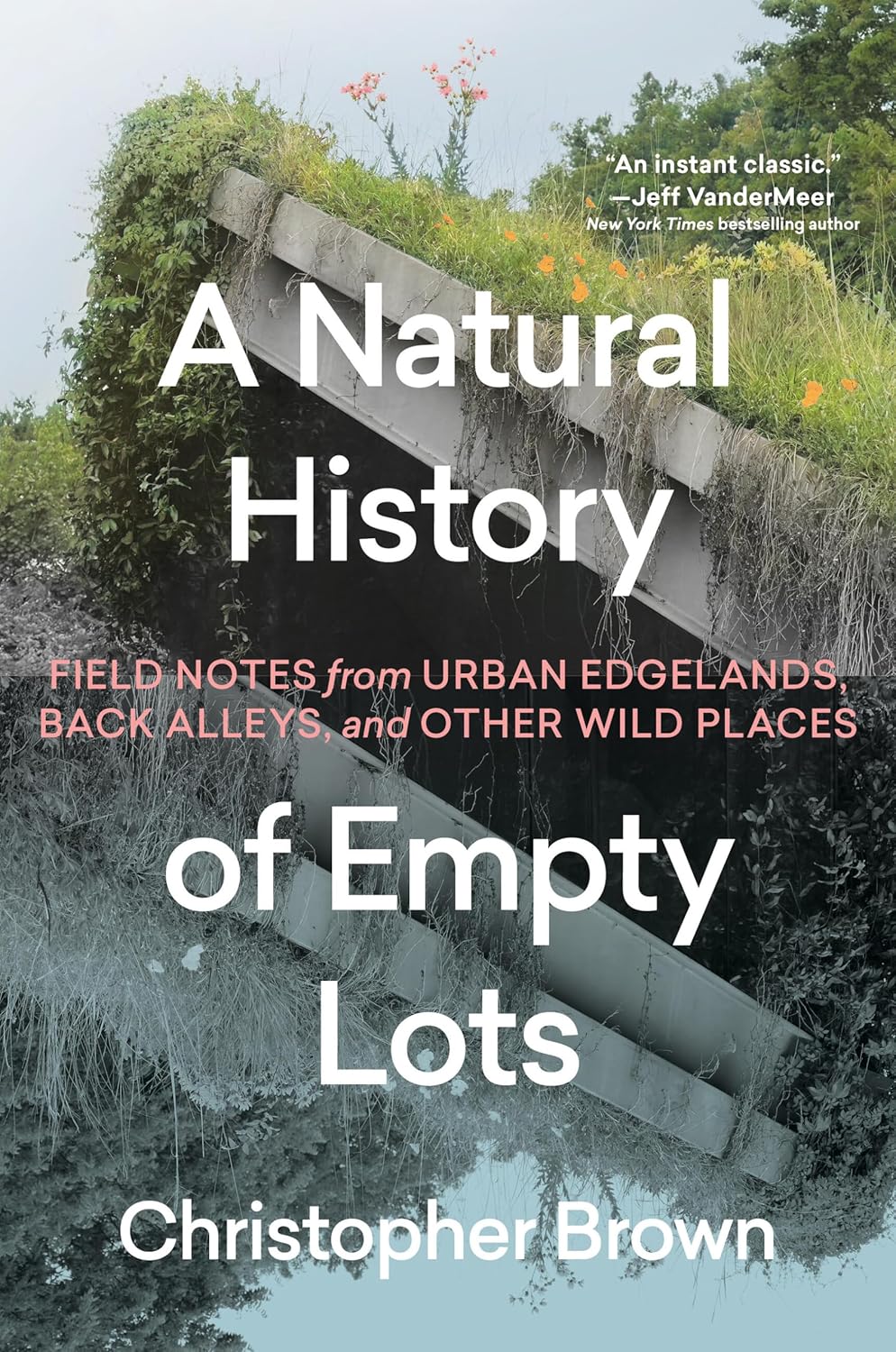 Are there moments when your life in glass towers and on crowded highways is so creepy and confining that you feel a rising panic, a sense of desperation? Christopher Brown, author of A Natural History of Empty Lots: Field Notes from Urban Edgelands, Back Alleys, and Other Wild Places has your number.
Are there moments when your life in glass towers and on crowded highways is so creepy and confining that you feel a rising panic, a sense of desperation? Christopher Brown, author of A Natural History of Empty Lots: Field Notes from Urban Edgelands, Back Alleys, and Other Wild Places has your number.
In this, his debut work of nonfiction, Brown tells the immensely gripping story not only of his discovery of wild, urban places but of the opportunities we each have to track, forage and wander if we so choose. Like some affable older brother, Brown invites us to tag along as he slips through the chain link fences and past the no trespassing signs of industrial zones in Austin, Texas. He leads us past an abandoned warehouse and into riparian forest along neglected riverbanks for early morning encounters with foxes, hawks, wild dogs, snakes in the lush undergrowth. Throughout the book, Brown’s prose is vivid. He demonstrates “the way that close observation and experience of wild nature even as it exists in the heart of the city” can help us “break through the haze of modern life.”
Brown doesn’t pull any punches: While he offers us this bounty of psychically restorative walks through the “edgelands,” he is equally clear that wilderness is disappearing fast. In some ways, reading this book evoked my love for the dystopian novels of my adolescence—masterpieces like Frank Herbert’s Dune and Octavia Butler’s Parable of the Sower. Brown is a published writer of science fiction as well as an attorney: He is masterful in utilizing the narrative arc of our imagined journey through ruined post-apocalyptic landscapes that have been rewilded, where Nature has reasserted her primacy.
Brown adroitly taps other cravings we have for the analog, the artifact, the unexplained and the supernatural. The book is filled with magic: the ways that dark shadows among trees can be mysterious, uncertain, a little scary. Brown occasionally shares remnants of incantations, spectral encounters, strange signals and signs that offer a powerful antidote in an age where AI is thieving our attention and creativity. Brown also writes as a lawyer, versed in legal reasoning and historical precedent in thinking about land as property. He’s a renegade but also an inside player: That older brother who earlier showed you the cool hidden places turns out also to be the guy who doesn’t back down in a fight as he and his neighbors work to protect these “wild urban spaces.”
But while this book is sanguine about the rampant destruction caused by encroaching urban development in Austin, TX, it also fuels hope. Brown writes lyrically of canoeing the city rivers with his son, Hugo; of creating a new home in the edgelands with his wife, Agustina; and of his community’s success in wresting small but meaningful wins through conservation and pocket parks. Those personal threads lead me to flash on the day my six-year-old resolutely came in from playing outside our apartment complex in Chicago and asked for a handsaw. She found it herself and went marching back out again without explanation. I later learned that she had used that handsaw to clear the undergrowth from inside a mammoth lilac bush overtaken by vines on the edge of the parking lot, creating a hideout for herself and her small, loyal troop of neighbor children. They were completely hidden, safe and self-reliant, snacking on huckleberries that she had foraged from the large tree close by. As a parent with untold worries about nuclear threat, climate collapse, and the seeming dissolution of any sense of collective or common good, I feasted on the vision of my child surviving through the sheer force of her curiosity and fearlessness in the outdoors. Brown’s book invokes that same level of widening possibility, where it is clear that the green and wild world is outside our silver towers, that nature will supersede us and that the edgelands still await.
Publisher: Timber Press
Publication Date: October 1, 2024.
Reviewed by C. Cybele Raver
C. Cybele Raver is a writer and award-winning social scientist whose work has appeared in PloS one, American Psychologist and elsewhere. Originally from New York City, she now lives in Nashville, TN. Raver is a fellow of the American Association for the Advancement of Science.
